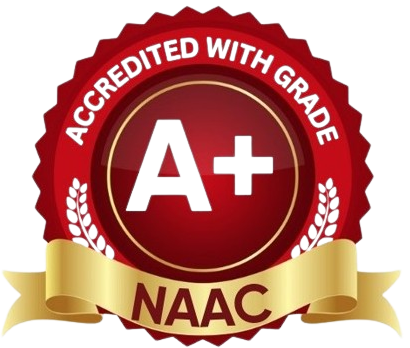B.TECH. in Electronics and Communication Engineering (ECE)
PROGRAMME EDUCATIONAL OBJECTIVES (PEOs)
PEO-1 : To identify, formulate, and solve complex engineering problems by applying principles of engineering, science and mathematics.
PEO-2 : To recognize ethical and professional responsibilities in engineering situations and make informed judgments, which must consider the impact of engineering solutions in global, economic, environmental and societal contexts.
PEO-3 : To make students able to function effectively on a team whose members together provide leadership, create a collaborative and inclusive environment, establish goals, plan tasks and meet objectives.
Programme Specific Outcomes (PSOs)
ECE graduate will achieve the following PSOs:
PSO-1:Able to solve problems of ECE through analytical thinking.
PSO-2:Students should be aware of contemporary issues and their implications.
PSO-3:Demonstrate proficiency in use of software and hardware required to practice Electronics and communication profession
PSO-4:Should posses the communication skills effectively both orally and in writing, should be able to demonstrate the practice of professional ethics and adherence to quality.
B.TECH. in Electronics and Computer Engineering (ECM)
PROGRAMME EDUCATIONAL OBJECTIVES (PEOs)
PEO-1 : To be reputable and recognized as a respected professional and efficient communicator in industries linked to computer and electronic technology.
PEO-2 : To exercise their career in a combined, team-oriented manner that embraces the multidisciplinary and multicultural atmosphere of today’s corporate world.
PEO-3 : To be capable enough to function as a liable member of the world with enthusiasm to mentor fellow employees and an understanding of the moral, societal and financial impact of their effort in a global perspective.
Programme Specific Outcomes (PSOs)
ECM graduate will achieve the following PSOs:
PSO-1:To have a concrete basis in the basics including the capability to devise and solve engineering problems by applying the logics of mathematics, electronics & computer engineering.
PSO-2:To make students capable to go into industry with the industrial techniques, skills, and tools necessary to be capable to resolve real-world exertion in electronics and computer engineering.
PSO-3:To be able to design dependable systems, procedure or processes from preliminary condition to a deliverable system.
PSO-4:To be competent in taking own decision in the expansion and acknowledgment of the knowledge and to gain the aptitude so as to engage in posts graduate education and ultimate persistent learning.
Programme Outcomes (B.Tech.):
Engineering Graduates will be able to:
PO-1. Engineering knowledge : Apply the knowledge of mathematics, science, engineering fundamentals, and an engineering specialization to the solution of complex engineering problems.
PO-2. Problem analysis : dentify, formulate, review research literature, and analyze complex engineering problems reaching substantiated conclusions using first principles of mathematics, natural sciences, and engineering sciences.
PO-3. Design/development of solutions : Design solutions for complex engineering problems and design system components or processes that meet the specified needs with appropriate consideration for the public health and safety, and the cultural, societal, and environmental considerations.
PO-4. Conduct investigations of complex problems : Use research-based knowledge and research methods including design of experiments, analysis and interpretation of data, and synthesis of the information to provide valid conclusions.
PO-5. Modern tool usage : Create, select, and apply appropriate techniques, resources, and modern engineering and IT tools including prediction and modeling to complex engineering activities with an understanding of the limitations.
PO-6. The engineer and society : Apply reasoning informed by the contextual knowledge to assess societal, health, safety, legal and cultural issues and the consequent responsibilities relevant to the professional engineering practice.
PO-7. Environment and sustainability : Understand the impact of the professional engineering solutions in societal and environmental contexts, and demonstrate the knowledge of, and need for sustainable development.
PO-8. Ethics : Apply ethical principles and commit to professional ethics and responsibilities and norms of the engineering practice.
PO-9. Individual and team work : Function effectively as an individual, and as a member or leader in diverse teams, and in multidisciplinary settings.
PO-10. Communication : Communicate effectively on complex engineering activities with the engineering community and with society at large, such as, being able to comprehend and write effective reports and design documentation, make effective presentations, and give and receive clear instructions.
PO-11. Project management and finance : Demonstrate knowledge and understanding of the engineering and management principles and apply these to one’s own work, as a member and leader in a team, to manage projects and in multidisciplinary environments.
PO-12. Life-long learning : Recognize the need for, and have the preparation and ability to engage in independent and life-long learning in the broadest context of technological change.









